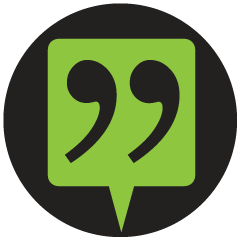All college teachers know the heartache of students who, for one reason or another, are indisposed to what teachers have to offer, but freshman-composition instructors suffer a special despair. Nineteen-year-olds enter their classroom three months out of high school, and few college tasks irk them more than a five-page paper on a literary work or social topic.
Worse than that, all too many of them don’t have the basic ability to write crisp sentences and coherent paragraphs. They don’t know where commas go, they can’t set the pieces of a periodic sentence into tight relations, they haven’t the vocabulary to say what they want to say, and the well-turned phrase and sparkling metaphor baffle them. Academic prose is a struggle, freshman comp a torture.
Other first-year subjects uncover daunting college unreadiness, of course, but there’s a difference. Students falter in calculus, chemistry, history, and psychology because they haven’t the knowledge or intelligence to comprehend the material. These disciplines pose to students a body of content that in most cases, with good pedagogy and the students’ diligence, can be imparted sufficiently for freshmen to earn a C+ and proceed to sophomore courses.
But composition isn’t a corpus of knowledge, and writing skills aren’t necessarily correlated with intelligence. Brilliant, informed people can produce language packed with solecisms and awkward constructions. The case of the humanities Ph.D. whose first paragraph in a journal submission is unreadable shows that bad writing stems not from ignorance. If it did, then teachers could remedy it merely by telling students what good writing is, standing at the chalkboard and announcing, “Now, a comma goes here, after this dependent clause.”
How often, though, do comp teachers explain the rules of grammar and norms of style only to find them broken repeatedly in the next paper assignment? The reason is, once again, that writing isn’t a knowledge. It’s a behavior, an ingrained set of habits and symptoms. A rough draft whose every sentence breaks down one way or another is the outcome of years of practice—the words they typically hear, the syntax of the sentences they read, the flow of their conversation, and other verbal samples repeated a million times. They begin three sentences in a row with the same grammatical subject because they talk that way with their friends. They don’t worry about comma placement in the 100,000 e-mails and text messages they’ve written and read in the previous three years, so why worry about them in the three-page paper on 1984?
As a behavior resulting from years of practice, student writing doesn’t readily submit to change. In spite of all the careful classroom instruction, when a student sits down in the library to write, the old habits and unconscious dispositions kick in.
Teaching, then, becomes a matter not of supplying knowledge but of altering behavior. To improve student writing, in other words, we must inculcate better habits and dispositions. Needless to say, a typical semester of freshman composition (or remedial English) isn’t enough. Colleges need to raise the writing component of the general-education requirements, adding another semester to the single course in writing that prevails in higher education today.
Until that happens, writing instructors can boost their impact by reaching into the summer months with a daily writing assignment. The one I have in mind is an un-innovative, non-21st century, low-technology exercise: transcription.
Think of the practice of Roman schoolchildren, 12th-century monks, and Bartleby. In this case, teachers should select an appropriate book for individual students and ask each one to devote 30 minutes each morning or evening to transcribing the prose. Open the book, find your place, grab a pen, and copy the words down in your own notebook. The selections should exemplify elements of style and grammar that students need to assimilate, for instance, Orwell’s essays, Thoreau’s Walden, and other great works of clarity and expression.
Thirty minutes a day for 100 days will advance a deep understanding of written communication, an unconscious sense of where commas go, a feel for sentence length and rhythm, a larger vocabulary, and other usage habits. It sounds laborious, but the more they transcribe, the more they will internalize effective style and correct grammar.
Student should do it by hand, in cursive rather than in printing. The reason is that the haptics of handwriting are more arduous and differentiated than the haptics of typing, the haptics of cursive more so than the haptics of block letters. A fuller, more variegated physical engagement with good prose produces a faster and deeper internalization of its elements. More muscle activity, more diverse creation of letters (a typing action is less differentiated, letter for letter, than is a writing action), more connections between letters (cursive treats letters as tied together, printing does not), and more direct production (handwriting makes the letter itself, typing only makes a key press down—the machine then makes the letter). Following that premise, I’m considering dropping a few standard essay assignments and substituting a cursive transcript of an essay by, say, James Baldwin or Tom Wolfe.
Next week I shall order my composition students to accept the summer assignment. We’ll decide upon a text for each one, and I’ll arrange to meet with them in September and have them submit their summer cursive drafts to me. I have no authority to do so, of course, and we shall see how many of them assume the task voluntarily.
Mark Bauerlein is a professor of English at Emory University.









